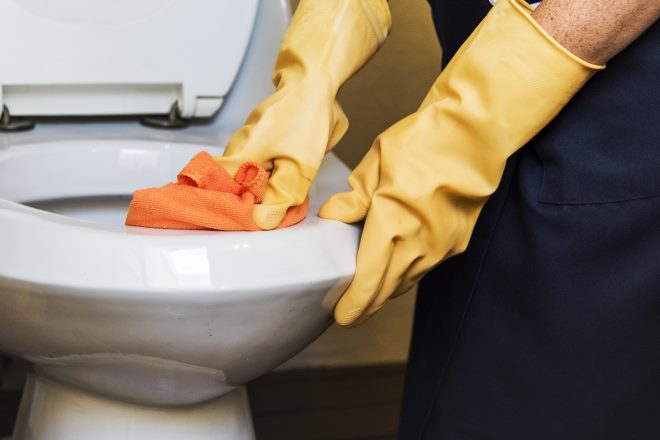Read Tips for Portable Restroom Rentals
Planning an outdoor event or construction project requires careful consideration of sanitation facilities. Portable restroom rentals provide a practical solution for maintaining hygiene and comfort when traditional facilities aren't available. Understanding the key factors involved in selecting and placing these units can make the difference between a successful event and potential health code violations or guest dissatisfaction.

Whether you’re organizing a wedding, managing a construction site, or hosting a festival, portable restroom facilities are crucial infrastructure that requires thoughtful planning. The right approach to restroom rentals involves understanding capacity needs, placement strategies, and service requirements that align with your specific situation.
Essential Features for Your Event
When selecting portable restrooms, several core features determine functionality and user satisfaction. Standard units typically include hand sanitizer dispensers, ventilation systems, and waste holding tanks with capacities ranging from 60 to 90 gallons. Deluxe models often feature hand washing stations with running water, mirrors, and interior lighting powered by solar panels or battery systems.
Accessibility compliance represents another critical feature consideration. ADA-compliant units provide wheelchair accessibility with wider doors, grab bars, and spacious interiors meeting federal requirements. These specialized units ensure your event accommodates all guests while maintaining legal compliance.
Climate control features become important for extended events or extreme weather conditions. Some premium units include air conditioning, heating systems, and enhanced ventilation to maintain comfortable interior temperatures regardless of outdoor conditions.
Smart Placement Strategies for Convenience
Strategic placement maximizes accessibility while minimizing disruption to your event flow. Position units within 200-300 feet of high-traffic areas to ensure convenient access without requiring long walks. However, maintain sufficient distance from food service areas, stages, or quiet zones to prevent odors or noise from service vehicles.
Ground conditions significantly impact placement decisions. Choose level, stable surfaces that can support delivery trucks weighing up to 80,000 pounds when fully loaded. Avoid soft ground, steep slopes, or areas prone to flooding that could complicate servicing or create safety hazards.
Consider prevailing wind patterns when positioning units. Place restrooms downwind from gathering areas to minimize odor concerns, and ensure adequate clearance around each unit for service truck access and door operation.
Services Tailored to Your Needs
Rental companies typically offer various service packages designed for different event types and durations. Basic service includes delivery, setup, and pickup with weekly servicing for longer rentals. Enhanced packages provide more frequent cleaning, restocking of supplies, and emergency service calls.
Specialty services address unique requirements such as luxury restroom trailers for upscale events, construction-grade units for job sites, or high-capacity units for large gatherings. Many providers also offer additional amenities like hand washing stations, waste receptacles, and temporary fencing.
Maintenance schedules vary based on usage intensity and event duration. Daily service may be necessary for high-traffic events, while weekly service suffices for smaller gatherings or construction sites with moderate usage.
Key Considerations for Selection
Capacity planning requires calculating expected attendance and usage patterns. Industry standards suggest one standard unit per 50-75 people for events lasting 4-6 hours, with additional units needed for longer events or alcohol service that increases usage frequency.
Budget considerations extend beyond base rental costs to include delivery fees, service charges, and potential overtime fees for weekend or holiday events. Factor in additional costs for premium features, extended rental periods, or last-minute changes to your order.
Local regulations may dictate specific requirements for portable restroom facilities at public events. Check with local health departments or event permitting offices to ensure compliance with capacity requirements, placement restrictions, and accessibility standards.
| Provider | Basic Unit Cost | Deluxe Unit Cost | Service Frequency |
|---|---|---|---|
| United Site Services | $200-300/week | $400-600/week | Weekly/Bi-weekly |
| Waste Management | $175-275/week | $350-550/week | Weekly |
| Republic Services | $180-280/week | $375-575/week | Weekly/Custom |
| Local Providers | $150-250/week | $300-500/week | Varies |
Prices, rates, or cost estimates mentioned in this article are based on the latest available information but may change over time. Independent research is advised before making financial decisions.
Expert Tips for Successful Rentals
Book rentals well in advance, especially during peak seasons like wedding season or construction busy periods. Popular dates and high-demand locations often require 2-4 weeks advance notice to ensure availability and preferred unit types.
Communicate specific site conditions to your rental provider, including access limitations, ground conditions, and any special requirements. Provide detailed site maps or photos to help the delivery team plan appropriate equipment and routes.
Plan for contingencies by ordering 10-20% more capacity than calculated minimums. This buffer accommodates unexpected attendance increases, longer event durations, or higher-than-anticipated usage rates.
Coordinate with other vendors to ensure restroom placement doesn’t interfere with catering deliveries, entertainment setup, or emergency vehicle access. Early communication prevents last-minute placement conflicts that could disrupt your event timeline.
Successful portable restroom rentals require balancing practical considerations with budget constraints while maintaining focus on user comfort and regulatory compliance. Proper planning ensures your sanitation facilities enhance rather than detract from your event experience.


